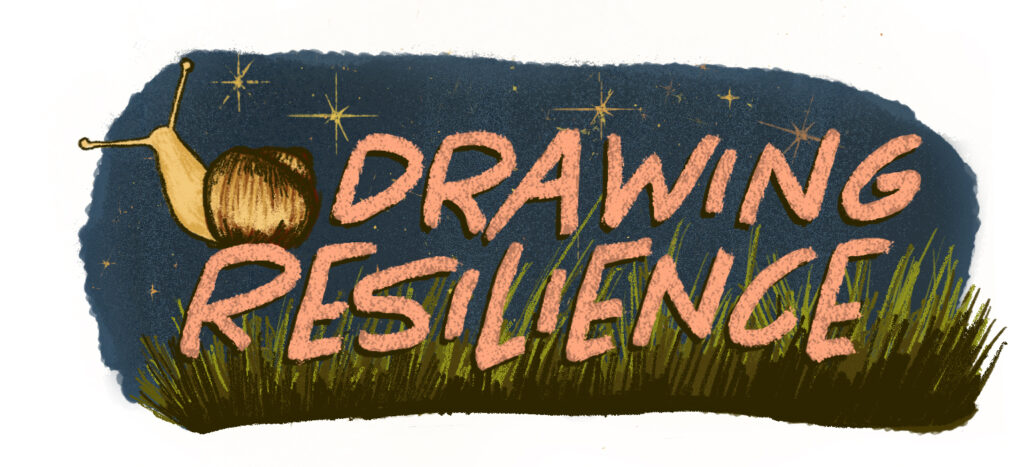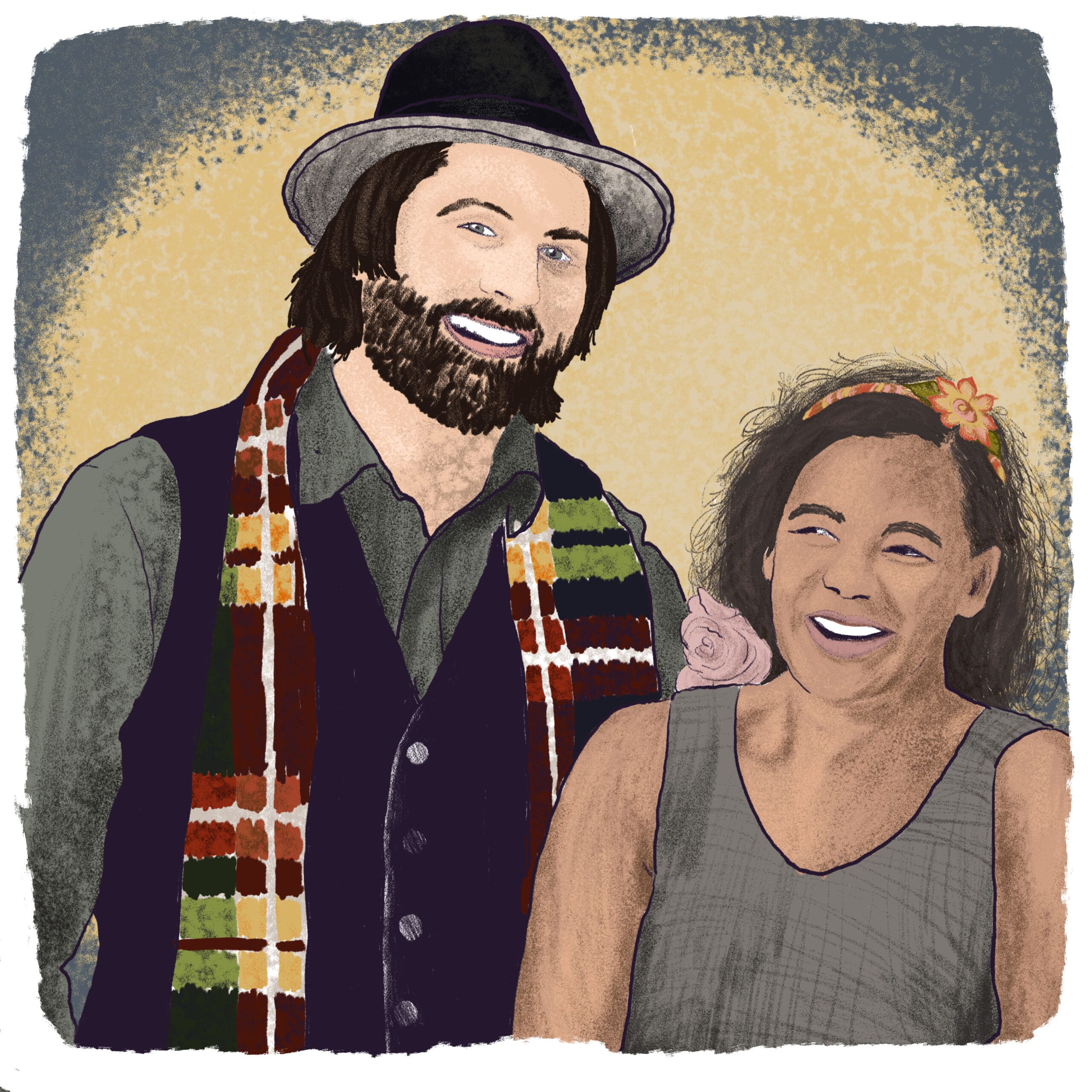
Drawing Resilience: Joe Seamons and Briar

Illustrations and interview by Nhatt Nichols
Joe Seamons and Briar are blues musicians, new parents, and members of the Rhapsody Project, a community that explores and celebrates music and heritage through an anti-racist lens. Nhatt Nichols spoke with them about musical resilience and raising a child with the tools they developed through the Rhapsody Project programs.
Nhatt: What do you think about resilience?
Joe: Resilience is creating or identifying traditions you want to preserve. We are born into a culture of consumerism, which drowns out a lot of the practices that people either had in past generations or minimizes the ones that we have now.
Nhatt: I love cultural resilience as being the opposite of Capitalism.
Joe: It’s what I think about every day.
The Rhapsody Project is building cultural resilience by getting folks to recognize the heritage that they’re born into and then encouraging them to understand heritage as a thing that you create, as well as something you continue.
I’m a White boy from Oregon who’s drawn to blues music, a culture that I didn’t grow up in and that I don’t carry in my body, except in the dimension that it’s American and I’m American. If I want to be a blues musician, I need to do things to be an equitable member of that culture.
The Rhapsody Project preserves the blues because it’s at the essence of American music. We’re making sure that everybody knows its tradition, that it belongs to America, and that it originates in Black culture.
Briar, being a Black American, carries it in her body in a different way than I ever will, so we have different relationships to the blues. Cultural resilience is understanding complex things like that. The Rhapsody Project helps people understand the cultures that they’re drawn to and the cultures they are a part of, learning that distinction and embracing both in an equitable way.
Briar: The Rhapsody Project is also just a music program. I know there are a lot of other things that we do, but the point is that we play music.
It takes resilience to be a musician, especially as a young person, because they’re doing so much. It says a lot that young people in our program are making time to play music.
Nhatt: You’ve recently had a baby. What kind of hopes do you have for creating community with your kid?
Briar: Because creating community is our job, it’s inevitable that he’ll be exposed to that way of thinking. It’s important to us that he is rooted in his own self. He’ll also be heavily rooted in the music community, because we are. It’s gonna be really cool to watch him grow up and see what he takes to.
Joe: Conversely, I’m like, quick, we have to start a kindergarten program before Marcellus turns five. How can we package all of the learning we’ve done as a community and hand it to his kindergarten teacher?
America has all of these standardized tests that wipe out a teacher’s time to do anything experimental. He’s going to spend six to eight hours a day of his childhood in public schools, and that’s going to leave out a lot. He’ll have our community, but I also want our stuff to be in other places.
Briar: I hear that, I just don’t agree. I don’t disagree wholeheartedly, but being in public school is important for him as an American to understand our systems. That’s different than what he does after school. It’s important that he’s in the school system and working with what they teach him so that we can support him in whatever he feels passionate about.
Nhatt: He’s growing up in these important community conversations and can take them into spaces where the conversations might be different and be able to hold his own.
Briar:
We are trying. He’s only two and a half months old, so we’re still very much in the keep him alive stage right now.
Get this and other rural content in your inbox with the Rural Assembly newsletter.







